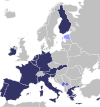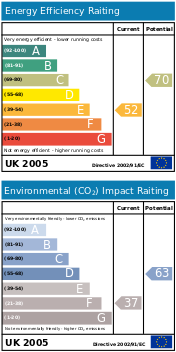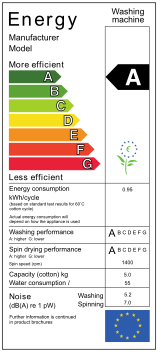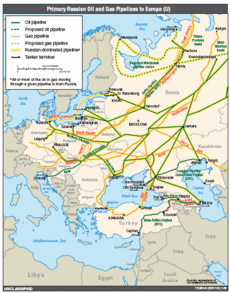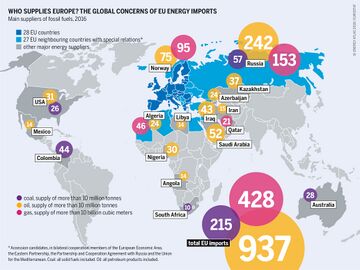سياسة الطاقة في الاتحاد الأوروپي
|
على الرغم من أن الاتحاد الأوروپي قد شرع، وحدد الأهداف، وتفاوض دوليًا في مجال سياسة الطاقة لسنوات عديدة، وتطور من الجماعة الأوروپية للفحم والصلب، فإن مفهوم إدخال "سياسة الطاقة في الاتحاد الأوروپي" مبدأ إلزامي مشترك اعتمد فقط في اجتماع المجلس الأوروپي في 27 أكتوبر 2005 في لندن. بعد ذلك، نُشرت مقترحات السياسة الأولى، "الطاقة من أجل عالم متغير"، من قبل المفوضية الأوروپية، في 10 يناير 2007. أهداف سياسة الطاقة الأكثر شهرة في الاتحاد الأوروپي هي 20/20/20 الأهداف الملزمة لجميع الدول الأعضاء في الاتحاد الأوروپي. يخطط الاتحاد الأوروپي لزيادة حصة الطاقة المتجددة في استخدامه النهائي للطاقة إلى 20%، وتقليل الغازات المسببة للاحتباس الحراري بنسبة 20% وزيادة كفاءة الطاقة بنسبة 20%.[2]
The EU Treaty of Lisbon of 2007 legally includes solidarity in matters of energy supply and changes to the energy policy within the EU. Prior to the Treaty of Lisbon, EU energy legislation has been based on the EU authority in the area of the common market and environment. However, in practice many policy competencies in relation to energy remain at national member state level, and progress in policy at European level requires voluntary cooperation by members states.[3]
In 2007, the EU was importing 82% of its oil and 57% of its gas, which then made it the world's leading importer of these fuels.[4] Only 3% of the uranium used in European nuclear reactors was mined in Europe. Russia, Canada, Australia, Niger and Kazakhstan were the five largest suppliers of nuclear materials to the EU, supplying more than 75% of the total needs in 2009.[5] In 2015, the EU imports 53% of the energy it consumes.[6] In January 2014, the EU agreed to a 40% emissions reduction by 2030, compared to 1990 levels, and a 27% renewable energy target, which is expected to provide 70,000 full-time jobs and cut €33bn in fossil fuel imports.[7] The target is ambitious compared to other advanced economies but insufficient to limit warming to well below 2 °C, let alone 1.5 °C, and align with the Paris Agreement.[8]
In 2015, the Framework Strategy for Energy Union is launched as one of the European Commission's 10 Priorities.[9]
. . . . . . . . . . . . . . . . . . . . . . . . . . . . . . . . . . . . . . . . . . . . . . . . . . . . . . . . . . . . . . . . . . . . . . . . . . . . . . . . . . . . . . . . . . . . . . . . . . . . . . . . . . . . . . . . . . . . . . . . . . . . . . . . . . . . . . . . . . . . . . . . . . . . . . . . . . . . . . . . . . . . . . . .
اتحاد الطاقة
تقارير مرحلية
مقترحات مبكرة
السياسات الحالية
خطة البرنامج الإطاري السابع
التحالف الأوروپي لأبحاث الطاقة (EERA)
مصادرالطاقة
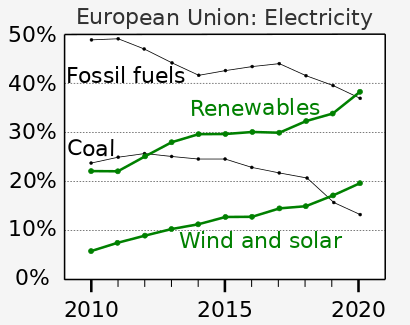
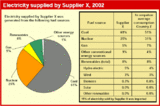
أسواق الطاقة
كفاءة الطاقة
ضرائب الطاقة
IPEEC
المباني
النقل
الطيران
. . . . . . . . . . . . . . . . . . . . . . . . . . . . . . . . . . . . . . . . . . . . . . . . . . . . . . . . . . . . . . . . . . . . . . . . . . . . . . . . . . . . . . . . . . . . . . . . . . . . . . . . . . . . . . . . . . . . . . . . . . . . . . . . . . . . . . . . . . . . . . . . . . . . . . . . . . . . . . . . . . . . . . . .
الصناعة
السلع الاستهلاكية
علاقات الطاقة الخارجية
Just Transition Fund
سياسات قيد التطوير
ضرائب مكافحة الإغراق على الطاقة الشمسية
الأبحاث والتطوير
الرأي العام
أمثلة لبلدان أوروپية
ألمانيا
انظر أيضاً
- CHP Directive
- Directorate-General for Energy
- Energy Charter Treaty
- Energy Community
- Energy conservation
- Energy diplomacy
- Energy efficiency in Europe (study)
- Energy in Europe
- EU Energy Efficiency Directive 2012
- European Atomic Forum
- European Climate Change Programme
- European Commissioner for Energy
- European countries by electricity consumption per person
- European countries by fossil fuel use (% of total energy)
- European Ecodesign Directive
- European Green Deal
- European Pollutant Emission Register (EPER)
- Global strategic petroleum reserves
- Internal Market in Electricity Directive
- INOGATE
- List of electricity interconnection level
- Renewable energy in the European Union
- Special economic zone
- Transport in Europe
المصادر
- ^ "Statistical Review of World Energy (June 2018)" (PDF). bp.com.
- ^ Obrecht, Matevz; Denac, Matjaz (2013). "A sustainable energy policy for Slovenia : considering the potential of renewables and investment costs". Journal of Renewable and Sustainable Energy. 5 (3): 032301. doi:10.1063/1.4811283.
- ^ Braun, Jan Frederik (24 February 2012). "EU Energy Policy under the Treaty of Lisbon Rules: Between a new policy and business as usual". Politics and Institutions, EPIN Working Papers. p. 14. Retrieved 21 August 2012.
- ^ "Low-carbon economy' proposed for Europe". NBC News. Associated Press. 10 January 2007.
- ^ "ESA-AnnualReport2009-100908.indd" (PDF). Retrieved 23 April 2011.
- ^ "Press corner". European Commission – European Commission.
- ^ Limiting climate change could have huge economic benefits, study finds Stopping global warming at two degrees would create nearly half a million jobs in Europe and save over a million lives in China, analysis of emissions pledges says, Guardian 31.3.2015
- ^ Robiou du Pont; Meinshausen (2018). "Warming assessment of the bottom-up Paris Agreement emissions pledges". Nature Communications. 9 (1): 4810. Bibcode:2018NatCo...9.4810R. doi:10.1038/s41467-018-07223-9. PMC 6240108. PMID 30446653.
- ^ "European Commission". European Commission – European Commission.
- ^ "The European Power Sector in 2020 / Up-to-Date Analysis on the Electricity Transition" (PDF). ember-climate.org. Ember and Agora Energiewende. 25 January 2021. Archived (PDF) from the original on 25 January 2021.
- ^ "Labelling provision in Directive 2003/54/EC" (PDF). Archived from the original (PDF) on 2014-02-20. Retrieved 23 April 2011.
. . . . . . . . . . . . . . . . . . . . . . . . . . . . . . . . . . . . . . . . . . . . . . . . . . . . . . . . . . . . . . . . . . . . . . . . . . . . . . . . . . . . . . . . . . . . . . . . . . . . . . . . . . . . . . . . . . . . . . . . . . . . . . . . . . . . . . . . . . . . . . . . . . . . . . . . . . . . . . . . . . . . . . . .
وصلات خارجية
- Official website
- European information campaign on the opening of the energy markets and on energy consumers' right.
- European Strategic Energy Technology Plan, Towards A Low Carbon Future.
- Eurostat – Statistics Explained – all articles on energy
- ManagEnergy, for energy efficiency and renewable energies at the local and regional level.
- BBC Q&A: EU energy proposals
- 2006 Energy Green Paper
- Collective Energy Security: A New Approach for Europe
- Berlin Forum on Fossil Fuels.
- The post-industrial revolution.
- Netherlands Environmental Assessment Agency – Meeting the European Union 2 °C climate target: global and regional emission implications
- German Institute for International and Security Affairs – Perspectives for the European Union's External Energy Policy
- Energy Law Research Forum
- The Liberalisation of the Power Industry in the European Union and its Impact on Climate Change – A Legal Analysis of the Internal Market in Electricity.
- Torsten H. Fransson Lecture: Implementing Clean Energy Goals in the EU[dead link] – European Union Center at the University of Illinois, Urbana-Champaign.
في الإعلام
- 8 Sep 2008 New Europe (neurope.eu) : Energy security and Europe.
- 10 Jan 2007, BBC: EU plans 'industrial revolution'
- 10 Jan 2007, BBC: EU's energy plans – how revolutionary?
- 10 Jan 2007, Reuters: EU puts climate change at heart of energy policy
- 10 Jan 2007, Xinhua: EU to build competitive internal energy market
- 10 Jan 2007, Deutsche Welle: Germany Wary About EU Energy Policy
- 10 Jan 2007, UK Government: UK Ministers strongly welcome EU energy proposals
- 9 Jan 2007, Greenpeace: Fine wrapping conceals lack of substance
- 14 Dec 2006, opendemocracy.net: Russia, Germany and European energy policy
- 20 Nov 2006, eupolitix.com: Barroso calls for strong EU energy policy
- Short description is different from Wikidata
- Pages using multiple image with auto scaled images
- Articles with hatnote templates targeting a nonexistent page
- Official website different in Wikidata and Wikipedia
- Articles with dead external links from May 2019
- سياسات ومبادرات الطاقة في الاتحاد الأوروپي
- اقتصاديات الطاقة
- الصفقة الخضراء الأوروپية

